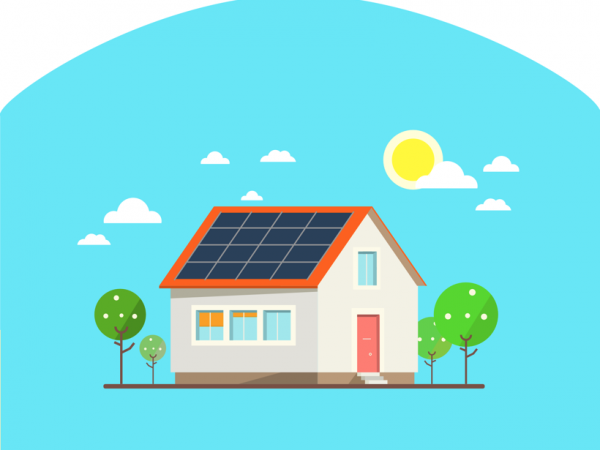Do Solar Panels Add Value To Your Home?
Discover how much you can save today with our solar calculator
If you are looking into buying rooftop solar for your home, it’s wise to think long term. Besides reducing or even eliminating your electric bill, solar increases home values for the lifetime of the system. That’s up to 30 years of savings. Even better, the latest data shows that solar-powered homes are hot sellers in today’s market. Think of rooftop solar as a green investment in more ways than one. Without a doubt, solar panels are a “must-have” for any environmentally conscious homeowner.

Why do home values increase with solar?
You can benefit from utility bill savings over the 25 to 30-year lifespan of your PV system. This can be well over $100 in monthly savings with an average-sized system. If you sell your house, you can pass those savings on to the new owner. Even if you never sell your home, your installation fully pays for itself many times over as utility rates go up.
Do property values always increase?
It makes a big difference if the solar panels are owned or leased.
Be careful when choosing how to finance your installation. It might be harder to sell your home if you have signed a lease agreement or have outstanding payments on the solar loan. If increasing your home value is a top reason for going solar, do your best to avoid a long-term loan for your installation or pay off the loan before listing the home on the market. A lease is rarely a good choice, avoid one if possible.
How Much Will Solar Panels Boost My Home’s Value?
A recent study shows that homes with solar panels sell 20% faster and for 17% more than non-solar homes. In addition, The Zillow report says solar panels increase property value by 4.1% across the U.S., which is $9,274 at average home prices. The increase in value varies by region:
- 5.4% increase in value for a home in New York state
- 4.4% increase in value for a home in San Francisco
- 4.6% increase in value for a home in Orlando, Florida
The U.S. Green Building Council analysis of home value showed that homes with solar sell for 8% more on average compared to similar homes without it.
Furthermore, Lawrence Berkeley National Laboratory released a study showing that homebuyers are willing to pay a premium of $15,000 to $20,000 for a home with an average-sized solar panel system on the roof. It seems like every month new numbers show that going solar has become a true investment and a smart move for money-savvy homeowners.
How do I maximize the increase in value for my home?
First of all, own the system. The next biggest factor is the size of the system. Property value increases with the number of solar panels installed. In other words, the more solar you have, the more your property value will go up. According to a recent report, each watt of solar adds $4 of value in California while in other parts of the USA, about $3 of value is added per watt. In California, an average system is about 5,000 watts. Therefore, a homeowner in California can expect a $20,000 premium!
Simply put, if a 2,500 square foot single-family home has a market value of $250,000, an identical home with a 5kW solar panel system can go for $270,000.
What determines the increase in home value from solar power?
- Location of your home
- The price of electricity in your area
- The size, condition and starting value of your home
- The age of the solar panel system
- How much energy the system can save
- Does your utility offer net-metering
- The current real estate market
That last one can weigh heavily on home values. The authors of a Berkeley study have stressed that precise and unique characteristics need to be considered when figuring out just how much solar adds to home values. Real estate markets and the demand for solar are shockingly different in San Diego when compared to West Virginia for example.

